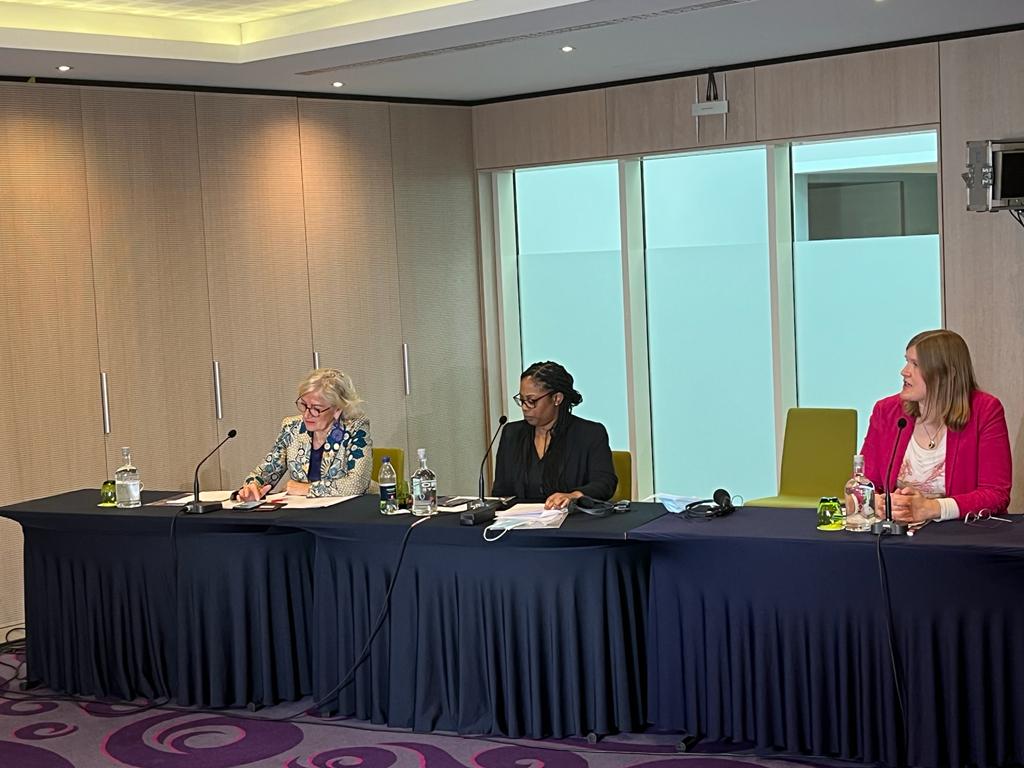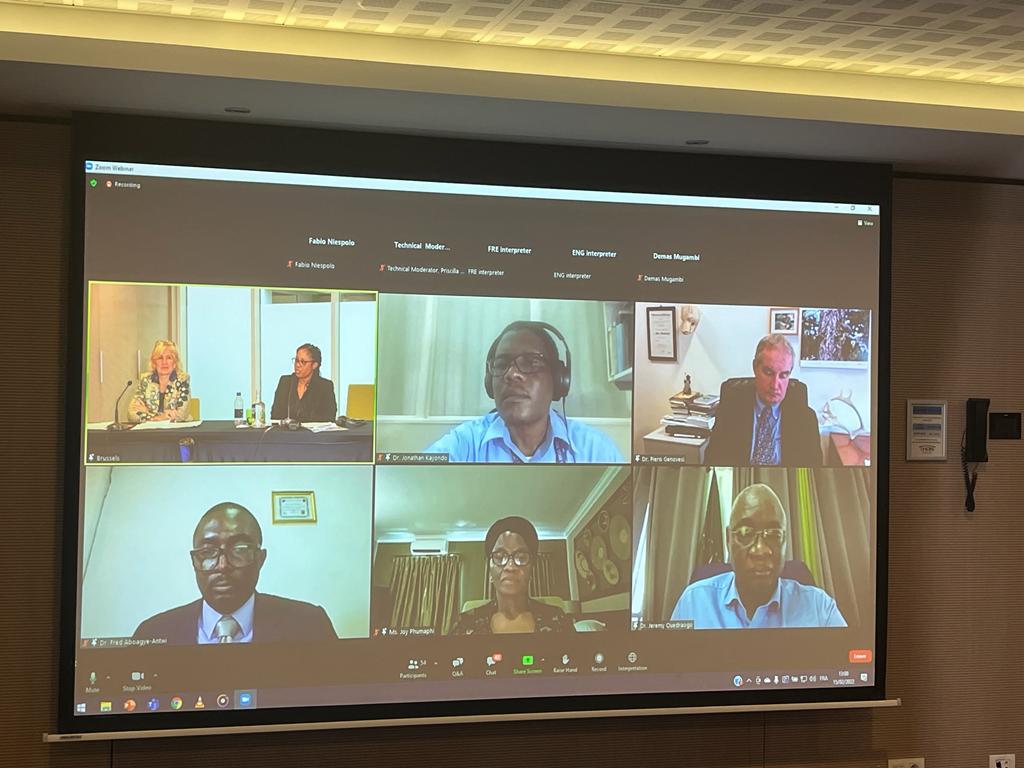On February 15, ahead of the European Union and African Union Summit, the Embassies of Ghana and of Uganda to the EU, the Outreach Network for Gene Drive Research and the Pan African Mosquito Control Association (PAMCA) held a joint conference to discuss the value of partnerships and innovation to promote health and resilience in a changing climate. The hybrid event took place in Brussels and online and gathered ambassadors, policy officers, researchers, and other relevant stakeholders.
The event provided a platform to discuss potential innovative tools which could help address issues such as vector-borne diseases and biodiversity loss against the backdrop of a changing climate.
African countries are being hit hard by the impacts of climate change. The changing climate is accelerating biodiversity loss and directly impacting African countries’ ability to meet their sustainable development goals. Malaria is a preventable and treatable disease, yet, according to the 2021 World Malaria Report, it was responsible for 627,000 deaths in 2020, an increase of 69,000 compared to the previous year. Whilst some countries march towards elimination of the disease, malaria is gaining ground in others, such as sub-Saharan Africa, with the region accounting for over 95% of all malaria cases and deaths globally. In both these cases, the tools available are not enough to address the challenges ahead and innovation and partnerships are needed to promote health and resilience.
The Ambassador for Ghana H.E. Sena Siaw-Boateng, the Ambassador for Uganda H.E. Mirjam Blaak Sow, and the French Ambassador for Global Health H.E. Stéphanie Seydoux kicked off the event by affirming the importance of innovation and collaborative partnerships to develop solutions for the African continent. They also recognized the efforts of organisations and research institutions such as GAVI and The Global Fund who are already working to address these challenges and called for further funding and commitments.
In response, the European Commission DG Research representative Ms Marjan van Merloo affirmed the readiness of the EU to partner with AU member states to develop innovative solutions. The European Innovation Council Horizon Prize on Early Warning for Epidemics – a € 5 million prize awarded for the development of a system to forecast, monitor and ultimately prevent outbreaks of vector-borne diseases – was cited as an example of initiatives which could especially benefit the African continent in the context of health research.

As a way of demonstrating current innovations being developed in Africa and partnerships for health across different countries, Dr Jonathan Kayondo and Dr Fred Aboagye-Antwi of Target Malaria discussed how gene drive approaches could respond to the challenge of vector-borne diseases such as malaria. They also highlighted the importance of collaborative partnerships between different research centres to co-develop innovative solutions to health challenges.
Dr Jeremy Ouedraogo, Head of the Regional Office of NEPAD’s Agency ABNE reiterated how AUDA-NEPAD is creating an enabling environment for cooperative research to take place by establishing a partnership for integrated vector management between African countries. The pilot project is currently being implemented in West Africa and if this proves successful, the model could be replicated across other regions of the continent.

To conclude the event, Dr Piero Genovesi of IUCN ISPRA took the floor to discuss the issue of environmental challenges and biodiversity loss. He highlighted that the current climate, biodiversity and health crises are interlinked and must be addressed concertedly. He also emphasized the need to increase the scale, scope, and development of innovative tools to fight major drivers of biodiversity loss, such as invasive alien species, which are a threat to both livelihoods and economies.
The event foregrounded the importance of developing innovative tools to address the interrelated challenges of health and biodiversity. It also highlighted the need to invest in new partnerships and think about how to develop these to ensure equity and sustainability.
Recent posts
